 【 微信扫码咨询 】
【 微信扫码咨询 】
Introduction to the Sino-German cooperative education model:
The Sino-German cooperation in running schools aims to introduce the German "dual system" vocational education model into China, and carry out localization reforms, learn from each other's strengths, and establish "Chinese-German colleges" in many secondary or higher vocational colleges in China to establish a combination of theory and practice. A vocational education base that integrates training and teaching, and practice training as the leading factor. It aims to improve the level of China's vocational education and train high-skilled talents for enterprises in China's industry, commerce, handicraft and other fields, thereby promoting the development of the entire industry.
一、Take Taizhou Vocational and Technical College-Sino-German College as an example:
1.College Introduction
The Sino-German College is jointly established by Taizhou Vocational and Technical College, Suzhou Yibei Education Technology Co., Ltd. and the German bbw Bildungswerk der Wirtschaft Berlin und Brandenburg. It was established in early 2017 and is a secondary college affiliated to Taizhou Vocational and Technical College. The Sino-German Institute is committed to localizing the German "dual system" vocational education model, creating regional vocational education models and benchmarks, and cultivating international technology application talents who serve local mid-to-high-end industries or mid-to-high-end industrial chains.
2.Open a major
Mechatronics technology major, CNC technology major, mold design and manufacturing major
3.School system:Three years
4.Training mode
Combining with the needs of the regional manufacturing industry to develop into the high-end of the industrial value chain, learning from the German "dual system" vocational education model, introducing high-quality teaching resources from the German Federation of Industry and Commerce (IHK), the design includes learning areas based on the German "Framework Teaching Plan" The construction of theoretical knowledge, the mastery of practical skills in the field of professional action based on the "Training Regulations" and the cultivation of professional quality based on the German "craftsman spirit" three-level concept and target system, constructing a "key ability" as the curriculum goal, with " Vocational standards" as the course content, "teaching modules" as the course structure, "the latest technology" as the course vision, "professional positions" as the core of the course, a course system with German "dual system" characteristics, through German foreign teachers and The joint teaching of Chinese teachers adopts an action-oriented teaching method and implements the third-party assessment and evaluation mechanism of the German Chamber of Industry and Commerce (IHK) to cultivate students' professional behavior ability.
5.Characteristics of the Sino-German cooperation model for running schools:
International faculty: The faculty of the Sino-German Institute is composed of senior German trainers, outstanding backbone teachers, skilled corporate trainers and corporate part-time teachers to form a stable and cooperative international teaching team, of which 17 teachers have German industry and commerce alliances Certified trainer qualification certificate (AEVO).
German project-based teaching: Unlike traditional teaching based on knowledge points, German project-based teaching is action-oriented, dividing knowledge points and skills into specific teaching projects and teaching situations, so that students can work on specific projects and Acquiring the corresponding knowledge and skills in the teaching situation will help cultivate students' vocational action ability in all aspects.
Practical teaching is dominant: the teaching content is close to the corporate model, so practical teaching occupies a dominant position in daily teaching. Theoretical courses are developed around the practical teaching content to achieve integrated teaching of theory and practice. At the same time, the site arrangement and teaching facilities of the learning factory (see attached picture) of the Sino-German Institute are in line with international standards, meeting the requirements of practical training and teaching for one person and one station.
Double certificate graduation: In 2018, the Leipzig Federation of Industry and Commerce (IHK) Taizhou Examination Center (see the attached picture) was officially established. Before graduation, students must take the final exam organized by IHK Leipzig, Germany. After passing the exam, they will obtain a globally certified profession Certifications. In other words, in addition to obtaining a full-time college diploma, students can also obtain a German general and internationally recognized IHK vocational qualification certificate, which doubles their employment competitiveness.
Individualized development of students: Sino-German College introduced the German dual-system vocational education model. This model also has certain shortcomings: in Germany, training positions are mainly provided by enterprises, and the vocational training carried out by enterprises mainly depends on the economic development and The level of economic development in various places is not based on the educational needs of young people. For students, this kind of training lacks individualized development for students, and students lack flexibility in future career changes. Therefore, the Sino-German Institute focuses on cultivating students' broad foundation, pays attention to their professional and humanistic qualities, carries out various second classroom activities, "German Culture Experience Week" and "Sino-German Lecture Hall", and invites well-known scholars and entrepreneurs , Excellent alumni come to the school for lectures and exchanges, dedicated to developing students' hobbies and promoting students' personal development.
6.School-enterprise joint training
After being enrolled by the college, students will conduct school-enterprise joint training based on the college's latest talent training plan and corporate training plan. This allows students to have clear learning goals and employment goals, and strong learning motivation and initiative. The college is committed to cultivating every student into a professional vocational skill talent that meets the needs of the enterprise. The school-enterprise joint training model also greatly improves the efficiency of cultivating professional talents.
1)School-enterprise cooperation:
The college combines local industry with actual teaching, and is committed to creating an integrated business model that integrates talent training, scientific research and technical services. It has now achieved a number of school-enterprise cooperation projects:
"Elite Plan":The college successfully applied for the “DMG MORI” school-enterprise cooperation project of the Ministry of Education of DMG Mori Precision Machinery Co., Ltd., built a “DMG” multi-axis CNC training room, explored the cooperative training of high-end CNC multi-axis machining talents, and served the transformation of the regional manufacturing industry upgrade.
Order class:The college and well-known companies such as Yonggao Co., Ltd., Zhejiang Kaihua Mould Co., Ltd., and Lutian Machinery Co., Ltd. have set up a 2+1 mode "dual system" order class on a trial basis. The enterprise funded the training costs of students in the order class and established With scholarships, both schools and enterprises jointly formulate talent training plans, develop courses, and implement dual-class teacher management, so as to tailor-made reserve talents for enterprises at the “backbone” level.
2)Production and education integration
The school provides enterprises with technical services, staff training, scientific research capabilities, and information consultation. Enterprises provide schools with internship positions, equipment, real teaching platforms and appropriate financial support. The two jointly develop a project curriculum system based on the work process, jointly organize practical training, jointly write school-based textbooks for professional courses, and jointly organize and strengthen the process management of students' internships.
3)Enterprise-led teaching mode:
In Germany’s “dual system” vocational education, companies play a leading role in cultivating talents. Two-thirds of the students’ study time is spent in companies. The talents trained in this way are closer to the needs of companies. Therefore, the future of Sino-German College Will gradually change the current school-enterprise cooperation in school as the main body and dominate the situation, and further give play to the main role of enterprises in vocational training.
7.High-quality employment:
The college will promote high-paying decent employment for students. Students who pass the relevant certificate exams can get additional opportunities to be recommended to foreign companies, joint ventures or high-quality local enterprises in Taizhou.
At present, among the first 149 graduates, more than 110 students have been internships in listed companies, foreign-funded companies, joint ventures and high-quality local enterprises in Taizhou. The students have good professional qualities and professional skills in the company, and they have gained a high level of enterprise. Appreciation, will achieve high-quality and high-paying employment.
二、Enterprise partner in the Sino-German school project—Suzhou Yibei Education Technology Co., Ltd.
1.Staff settled:Taizhou Vocational and Technical College cooperated with Suzhou Yibei Education Technology Co., Ltd. to set up the Sino-German College. The overall operation of the college is carried out in an enterprise management manner. Elbe Education has a number of permanent staff in the Sino-German Institute, responsible for project management and participating in daily teaching. Resident personnel include a project manager, three translators and three trainers:
1) The project manager has rich project experience, is responsible for the on-site training management, coordinates the tripartite cooperation, and realizes the stable operation of the project;
2) The translator is responsible for cooperating with the teaching work of foreign teachers and connecting with German resources;
3) The trainer has rich corporate work experience, is responsible for leading the training and teaching work of various professions, and is committed to promoting the integration of production and education and developing teaching carriers that meet the needs of the industry.
2.Enterprise personnel management mode:The entire college implements a corporate management model, and regular performance appraisal of all in-service personnel of the college is helpful to mobilize the enthusiasm of all teachers in the college.
3.Development of teaching carrier:The company is committed to the development of a teaching carrier based on the German project-based teaching method, based on the field of study, and oriented by professional actions, which is used to serve the daily teaching activities of Sino-German projects.
4.High-quality employment:The company keeps in touch with enterprises in related fields for a long time, explores cooperative enterprises and foreign-funded enterprises, and promotes high-paying employment for students.
5.Development of German resources:
The company maintains good cooperation with Germany's first and second largest vocational education groups: bbw in Bavaria, bbw in Berlin and Brandenburg, and is committed to introducing German teachers, teaching carriers and relevant authoritative certificates.
German Skilled Study Abroad and Employment Project:
Suzhou Yibei Education Technology Co., Ltd. is committed to connecting German educational resources and opening up more learning and employment opportunities for students. It has cooperated with the China-Germany International Education Research and Development Center (CDI GmbH) to carry out a number of short-term study tours and skilled study abroad projects. Students who intend to study abroad or find employment are sent to Germany to experience German industry and culture.
Annex:
Learning factory site of Sino-German Institute:
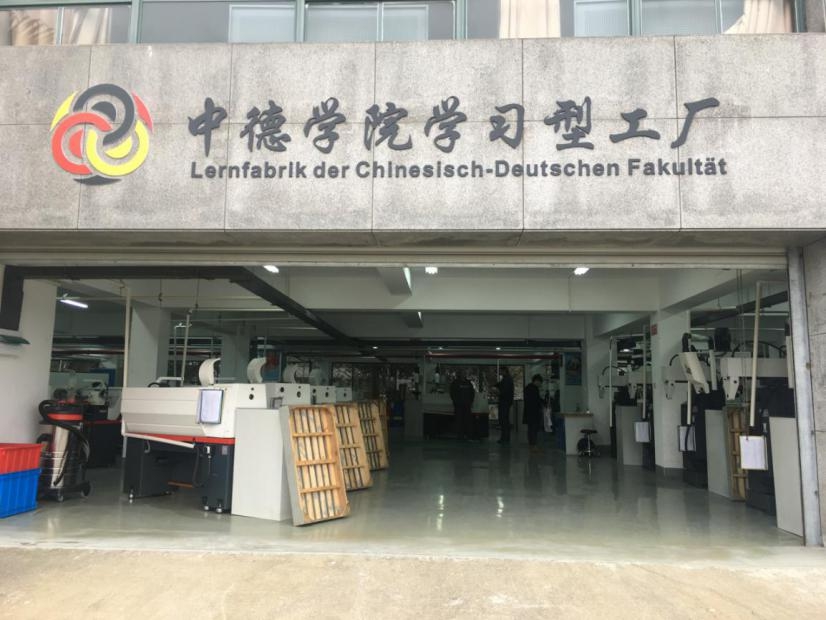
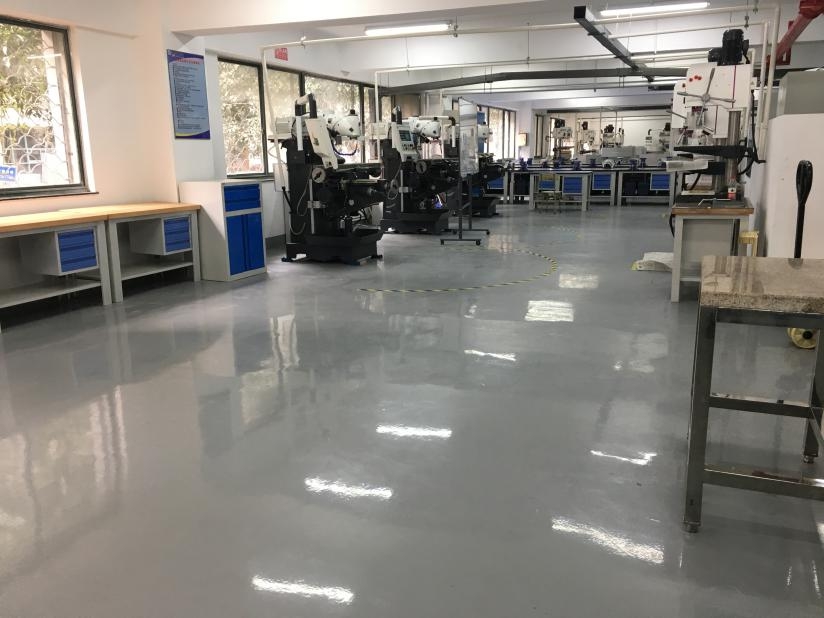
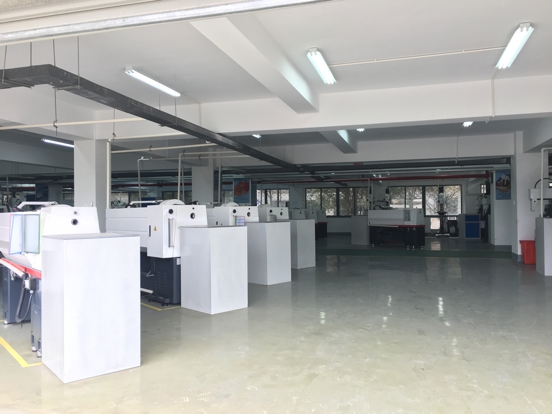
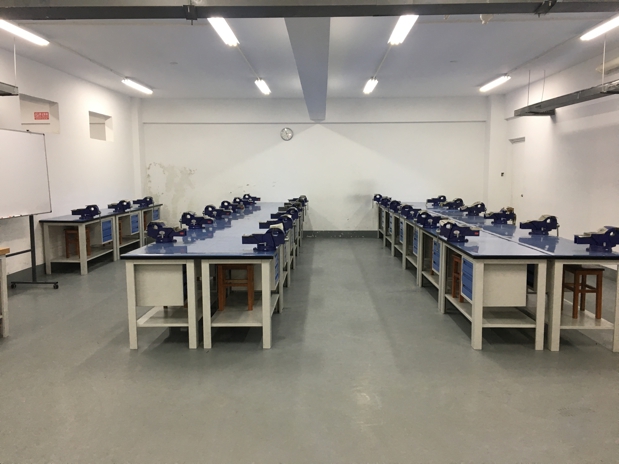

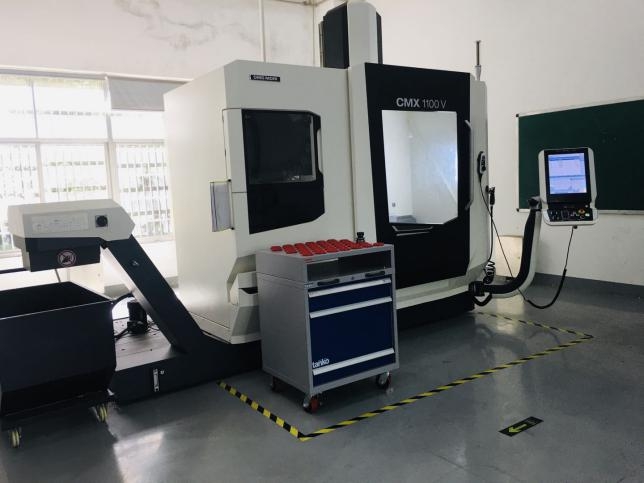

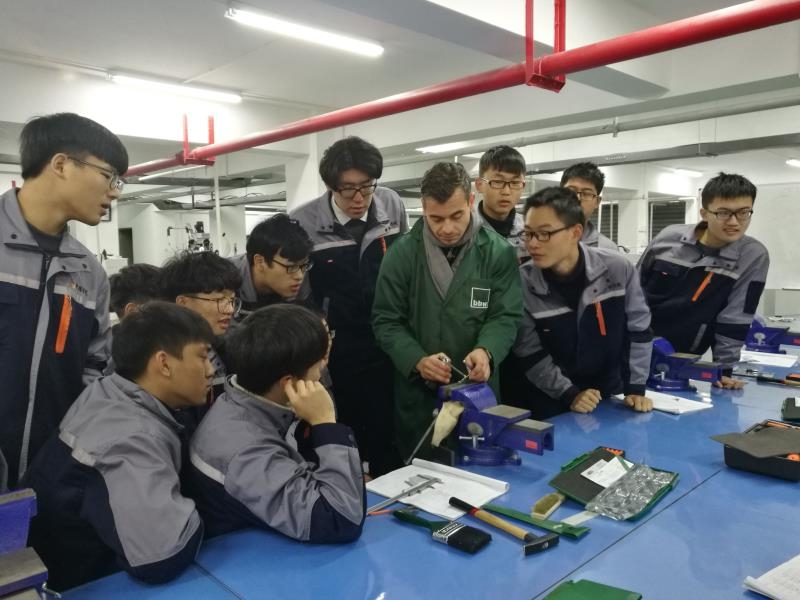
School-enterprise cooperation:
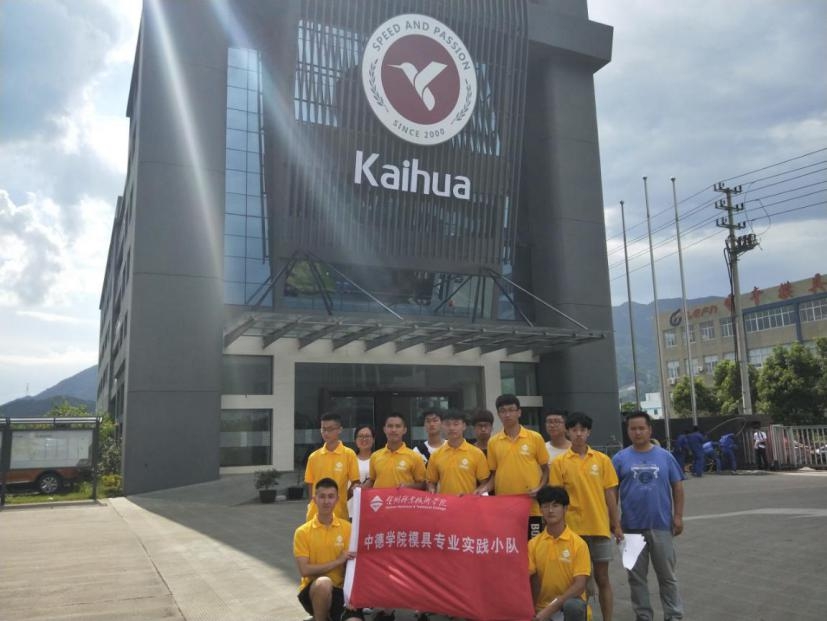
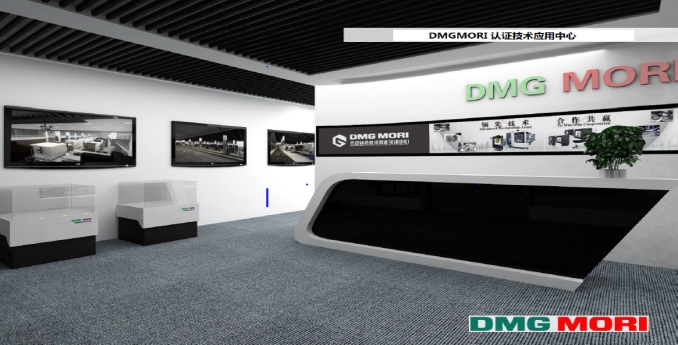
IHK Test Center:
